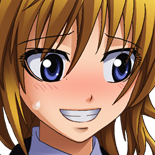Warning: Long post. No TL;DR.
I want to preface this post by saying that I’m 18. That is to say, I believe I can assume that I’m younger than most people on this forum. That amounts to less life experience, less maturity, and less exposure to literature- especially in the context of the demographic of this forum.
I’ve loved narratives since I was a little child. I learned to read at six, started to read as a hobby at seven, and now I have two full bookcases’ worth of books and then some. I think I have the right to say I’ve read a lot of books for my age. That love then carried on to video games with a narrative focus and eventually visual novels.
I can count Hitchhiker’s Guide To The Galaxy, Battle Royale, Dune, Kafka On The Shore, GONE among my favorite novels. On the video games front, my favorites are Persona 3, Persona 4 Golden, Dark Souls, NieR (alongside others). As for visual novels, Umineko, The House In Fata Morgana, Remember11, YU-NO, 999 and Virtue’s Last Reward are up there. I don’t know why I wrote this paragraph, but I wanted to give you a sample of the works that influenced and touched me.
real post starts here
All my life, despite engaging with a sizable amount of narrative work, I always feel like I’m “missing the point” of a story. This is especially true for multi-layered stories- most relevantly, Umineko. FULL SPOILERS FOR UMINEKO follow. I think I gave up two Episodes in- the Virgilia lecture (in Episode… 3, was it?) did rejuvenate my interest for a while but I just gave up after a while. By Chiru, I was already taking everything in at literal face value and I didn’t even understand why Beatrice was comatose. In EP8, I chose the “Trick” ending fully deliberately, thinking it was what the game wanted me to choose. Admittedly, I was fifteen then, but it doesn’t change that 95% of the game’s themes and messages flew right over my head.
This is just one example. Whenever I’m reading or playing something, I always have trouble noticing or understanding metaphors, allusions and the like. Don’t even get me into allegorical works. I always miss the significance of philosophical/ abstract dialogue or text. Any analysis I read after playing or reading a work has far more insight into that work than I do.
This insecurity of mine has gotten to the point where I’m starting to grow reluctant about playing/reading things that I suspect may be over my head. Most recently, this is happening while I’m reading Subahibi where I feel I’m missing every philosophical theme the game is trying to tackle.
I think I’d call this feeling “narrative anxiety”.
Does anyone else feel similar? I doubt many people not confident of their analytical skills would gravitate towards liking Umineko (or any other Ryukishi works), but I’m just wondering if anyone else can relate to constantly feeling that they’re not understanding the message of a novel or a game.


